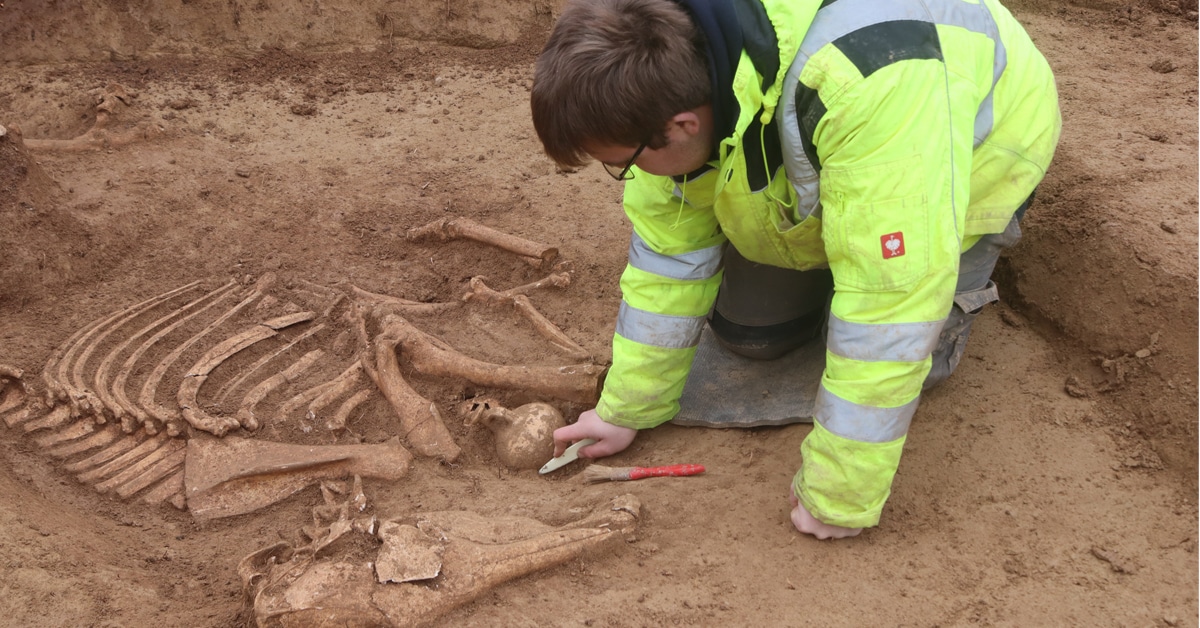The skeletal remains of 100-plus horses dating to the Roman Empire were discovered by a team of archaeologists in Germany in July of last year. The find is thought to be the largest of its kind found in the European nation.
According to a press release from the archaeological firm ArchaeoBW, the remains were unearthed during a construction project in the city of Stuttgart. Once discovered, the gravesite was dug up by ArchaeoBW and the State Office for Monument Preservation (LAD), which concluded there were over 100 horse skeletons that dated to the second century AD, when the area was used by the Roman military.
Apparently, the animals were part of a Roman cavalry unit. “The troop with nearly 500 riders probably had at least 700 horses; losses had to be constantly replaced,” lead archaeologist Sarah Roth said in the release.

